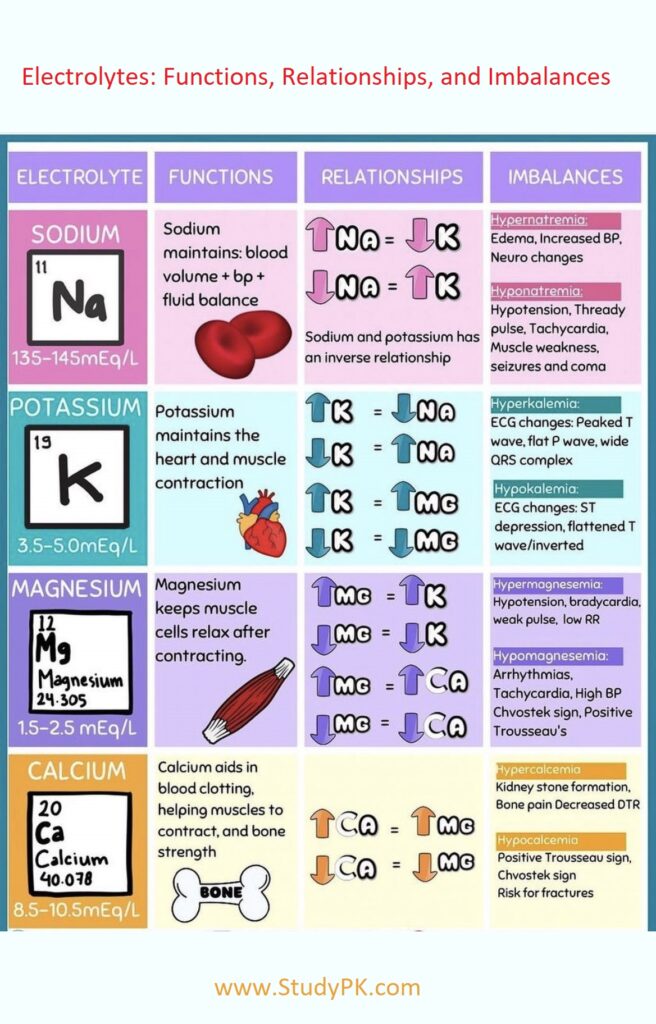Electrolyte imbalances can occur when the levels of electrolytes in the body become too high or too low. This can happen due to a variety of factors, including illness, dehydration, and medication use. Electrolyte imbalances can cause a variety of symptoms, including fatigue, muscle cramps, and confusion. In severe cases, electrolyte imbalances can be life-threatening.

| Electrolyte | Functions | Relationships | Imbalances |
|---|---|---|---|
| Sodium | Maintains blood volume, blood pressure, and fluid balance | Inverse relationship with potassium | Hyponatremia: low sodium levels, can cause confusion, seizures, and coma |
| Potassium | Maintains heart and muscle contraction | Inverse relationship with sodium | Hypokalemia: low potassium levels, can cause muscle weakness, fatigue, and arrhythmias |
| Magnesium | Helps muscle cells relax after contracting | Positive relationship with calcium | Hypomagnesemia: low magnesium levels, can cause muscle weakness, fatigue, and confusion |
| Calcium | Aids in blood clotting, muscle contraction, and bone strength | Positive relationship with magnesium | Hypocalcemia: low calcium levels, can cause muscle cramps, tingling, and tetany |
Leave a Reply